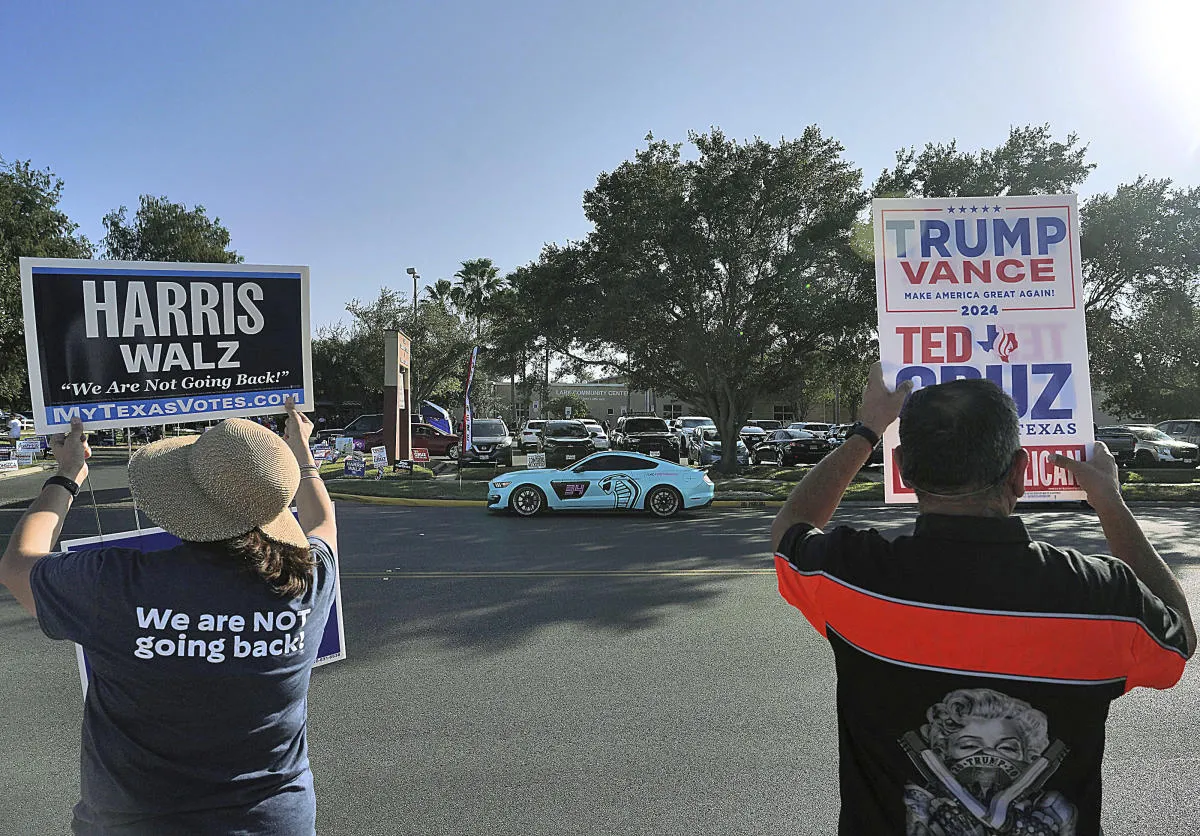Is Democracy in America on the Brink? Voters Sound the Alarm Ahead of 2024 Elections
As the dust settles from the recent 2024 presidential election, a palpable sense of unease permeates the American electorate. With Donald Trump emerging victorious, concerns about the future of American democracy have intensified. Many voters fear that his presidency could lead to a significant erosion of democratic institutions, raising alarms about the implications for governance and civil liberties.
Who is Concerned?
A significant portion of the electorate has voiced deep apprehensions regarding the state of democracy in the United States. According to recent surveys, over 60% of voters expressed fears that Trump’s administration might steer the country toward authoritarianism, concentrating power in the hands of a single leader. This sentiment echoes the unresolved grievances that have simmered since the January 6 Capitol riots, which starkly highlighted vulnerabilities within the democratic process.
What Are the Key Issues?
The election results reflect a nation grappling with dysfunction in government. Trust in governmental institutions has plummeted, with many Americans viewing Congress as ineffective due to extreme partisanship. Issues such as gun violence and climate change remain unaddressed, further fueling public discontent. The Electoral College system, which allows a candidate to win the presidency without securing the popular vote, has also raised concerns about representation and fairness in elections.
When Did This Start?
The roots of these concerns can be traced back to a series of events that have unfolded over the past few years. The 2020 elections saw a notable increase in voter engagement, with turnout reaching historic levels. However, the subsequent political climate has been marked by harsh polarization and confrontational rhetoric, eroding public trust and making political discourse increasingly toxic.
Where Do We Go From Here?
International observers noted that while the elections were well-organized, they were conducted in a highly polarized environment. Disinformation campaigns and political violence have undermined public confidence in the electoral process. Reports of threats and harassment against election officials have raised alarms about the safety and integrity of elections, complicating efforts to recruit election workers for future cycles.
Why Is This Important?
The implications of Trump’s agenda are significant. His plans include dismantling civil service protections and targeting political opponents, which could lead to profound changes in how democracy functions in America. Experts warn that ongoing polarization and disinformation may pose long-term risks to American democracy if not effectively addressed.
How Are Young Voters Responding?
Interestingly, there is a notable shift among younger voters, with nearly half supporting Trump in this election cycle. This trend reflects a desire for significant change in governance among this demographic. As the youth engage more actively in the political process, their influence could be pivotal for the future of democracy in the United States.
The Role of Media
The media landscape has also played a crucial role in shaping public perception. Increasing partisanship in media coverage has contributed to political polarization, affecting how information is disseminated to voters. This environment complicates efforts to foster informed political discourse, further entrenching divisions within the electorate.
Conclusion
As America stands on the precipice of a new political era, the concerns surrounding democratic institutions are more pressing than ever. The 2024 elections have not only highlighted existing fractures within the political landscape but have also raised critical questions about the future of American democracy. With a significant portion of the electorate sounding the alarm, it is imperative for citizens, lawmakers, and institutions to engage in meaningful dialogue and reform to safeguard the democratic values that underpin the nation.
In the coming months, as the implications of the Trump presidency unfold, the resilience of American democracy will be tested. The path forward will require vigilance, engagement, and a commitment to addressing the deep-seated issues that threaten the very fabric of governance in the United States.






Leave a Comment